Why is site speed important in 2022?
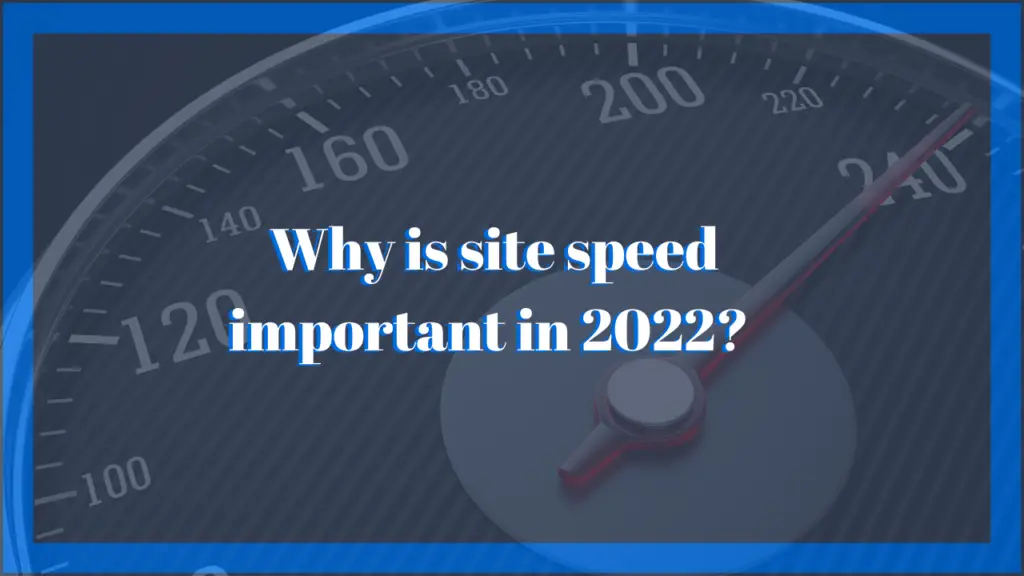
Site speed is important because it guarantees a high-quality user experience, contributes to good Search Engine Optimization (SEO) ranking, as well as improves conversion rates for eCommerce and commercial websites. Fast websites typically enjoy high traffic volumes.
Let’s be honest, a slow response time from a website can be extremely annoying. I know it is for me. If a website takes an extended period of time to load, it can cause a negative user experience, affecting the site’s SEO and traffic volume. Fast loading websites provide a much better user experience.
When you’re at a restaurant, slow service normally results in a poor review and fewer future customers. This is similar for websites. If customers have little patience to wait on their meal, think about how annoying it will be for a user to be waiting on a webpage to load. Sites that load quickly tend to receive more traffic and have better conversion rates.
Keep it fixed in your mind, website speed = Quality user experience.
Why does website speed matter?
The first thing visitors notice about your site is its speed. Web designers and developers pride themselves on creating functional and eye-catching websites. However, if the functionalities and contents of the site aren’t adequately optimized, they may negatively affect the speed.
Research shows that 47% of people don’t normally wait more than 2 seconds for a website to load.
In this article, you will find three reasons website speed is essential and why it is important to optimize site speed.
1. High speed ensures a great user experience.
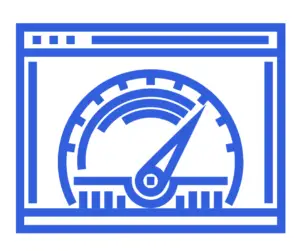
When a user visits your webpage, whether it is the first time or second, they are expecting the site to load within 2 seconds. As the old-time proverbs state, ‘First impression last,’ which in this case, stands true.
In the digital marketing world, site speed is a factor used to determine what users will perceive about your brand. Is it slow and unreliable, or fast and dependable?
Faster websites are considered professional and more reliable. For users’ requirements and expectations to be met, you must maintain a stable site giving them what they want, when they want it.
Recovering from making a negative first impression can be very challenging. So it’s best to get it right the first time.
2. SEO rankings are affected by website speed.
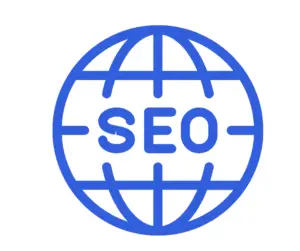
According to Google, site speed is a factor that can positively or negatively affect a website’s ranking on the search engine results page (SERP). This directly influences the organic traffic a site will get.
For some time now, Google has adopted the mobile-first policy. This has led to an even greater amount of importance being placed on site speed, particularly for mobile devices. If your site is not properly optimized for mobile devices, meaning it’s responsive and loads well, then you’re going to have a hard time.
It’s fairly easy to optimize your site so that it runs smoothly on desktop devices, but that’s not the case for mobile devices. You’ll have to put in a little more effort.
A good SEO ranking is not all about speed, Google also implores webmasters to not compromise with the quality of their content. Content quality and relevance play a vital role in SEO success.
Google’s Core Web Vitals are standardized metrics that measure and score a web user’s experience with loading a webpage. The primary aspects of a page that is measured include:
- Largest Contentful Paint (LCP): it measures the page’s loading performance. A load time within 2.5 is ideal.
- First Input Delay (FID): this measures your site’s interactivity. An FID of 100 milliseconds is ideal.
- Cumulative Layout Shift (CLS): this measures how stable a page is as it loads. For a good user experience, it has to be 0.1.
All in all, Google’s stance on site speed is simple. If a site takes too long to render, it will fall out of favor with the algorithm and be ranked at the bottom of the list.
3. Website Conversion can be affected by site speed
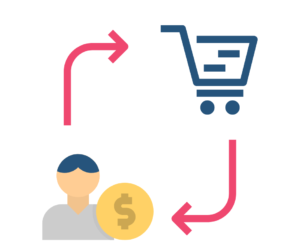
Conversion is the process by which website users transition from viewers to subscribers and or paying customers.
Keep in mind that users will stop returning to your site if it takes too long to render. As a result, this may cause the loss of potential users and potential customers by extension a lost of revenue, this can be especially damaging for eCommerce websites.
A slow rendering site does not inspire trust and reliability in the minds of users willing to make a purchasing decision.
Once you are offering goods or services on your website, a fast site speed is mandatory. Just a one-second delay can lead to a reduction in conversion. So, optimizing your webpage’s speed is extremely important for your website development.
What impacts site speed?
We would have explored how detrimental to your website brand a slow load time is, however, let us dive into the factors that contribute to this.
Some factors that impact a website’s speed originate from the user’s end, these can be simple things such as the user’s internet connection or faults with their devices. However, in most instances, fluctuations in site speed arise from problems on your end. These problems may be related to:
- Web hosting
- Plugins
- Browsers
- Images and videos
Web hosting
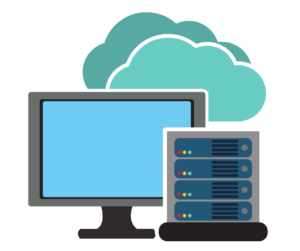
Web hosting is a service that allows your website to be available on the internet for easy access. The service is offered by businesses that provide servers (specialized computers) and a secure network to store all the files for your website.
There are several types of web hosting options, the most common being shared servers, dedicated servers, Virtual Private Servers (VPS), and cloud hosting.
Each hosting company offers different uptime, which is the length of time the server provides availability without issues. Make sure to choose a provider that guarantees at least 99.5% uptime.
In selecting the hosting company, you will then need to decide the most suitable plan. Selecting shared servers is the most inexpensive option, however, your site will be forced to share resources with other sites on that same server.
Now, this may not be an issue for small websites, but for larger ones, it will be difficult to maintain a satisfactory speed time.
Dedicated servers and VPS are the most advanced web hosting options. Larger companies and eCommerce sites normally need several dedicated servers to make certain that their webpage runs as quickly as possible. They offer good bandwidth.
What is bandwidth?
It is the quantity of data that your website can transfer to your user in a specific amount of time. If your website traffic is high, you will most definitely require more bandwidth to accommodate it.
In the event your website grows to a point where it starts receiving more traffic than the server you are on can accommodate, it’s best to do a server upgrade. With all the great hosting services at your disposal, this will be an easy and swift process.
Plugins
If you operate a WordPress website, using plugins is ideal for adding advanced functionalities to your website. They are a great way to upgrade your website from being bland and generic to being well-designed and interactive.
However, make every effort to be selective about the number of plugins you install. Having too many plugins will put a strain on your server, and severely affect your website’s speed.
If you are uncertain as to which plugins to discard and which to keep, do your research on plugins that are built to improve the average site load time and the ones that hamper it.
Browser
Older versions of your browser will affect your website’s speed, as they may be incompatible with new assets and code on your site. This can be resolved by checking that the most recent version of your browser is being utilized.
You are able to set your browser to automatically update itself.
Images and videos
On most devices, media files like images, and videos will impact how that particular device functions. This is the same for website speed, the larger the file size is and the more files that are on the webpage, the longer the site speed will be, as a result, it is important to optimize your media files.
Luckily, there are some simple methods to optimize media files.
Simple ways to improve site speed
To improve your website speed, firstly, it is mandatory to test its speed.
Some useful site speed checker tools include:
Secondly, you will need to take action, and actively address the problems that are affecting your site’s speed. You can do this by:
1. Upgrading your server or changing web host.
As mentioned earlier, if your website has increased in traffic or has a lot of content uploaded to it, it’s likely your site will experience significant reductions in its loading time. The best solution for this problem is to either upgrade your server or change to another hosting service that provides a better service.
2. Use a Content Delivery Network (CDN).
CDNs are a network of distributed servers that shorten the distance information has to travel between your server and the end-user. They are perfect for delivering your content more quickly, and by extension reducing your page speed.
3. Optimize Media Files.
You should ensure that your media files (images, videos, audios) are no larger than necessary, in the right format (PNG is generally a better format for images), and that they are compressed.
Media files are major contributors to slow loading time, don’t fall into this trap.
4. Minify JavaScript and Cascading Style Sheets (CSS) code.
Minifying JavaScript and CSS code involve removing unnecessary characters, comments, and spacing from the code, and using shorter variables and functions. Doing this can dramatically improve page speed. Google provides some recommendations on how to do this.
5. Web Caching.
This is a great way to improve the load time of your website without having to give up anything. Caching involves storing copies of your website’s files (CSS and JavaScript files, image files, etc.) in a cache, or temporary storage location, so that they can be accessed more quickly.
With this, users can quickly render your page’s content in a fraction of the time it would normally take.
If you are operating a WordPress website, WP Rocket, a chasing plugin, is perfect for improving site speed. It can perform many of the functions previously discussed.
In Conclusion
In a nutshell, the speed of your site can make or break it.
A website taking a long time to load will negatively impact user experience, SEO performance (by extension site traffic), and the website’s conversion rates. In 2022, the digital market is expected to continue growing, so make the smart decision and take advantage of it.
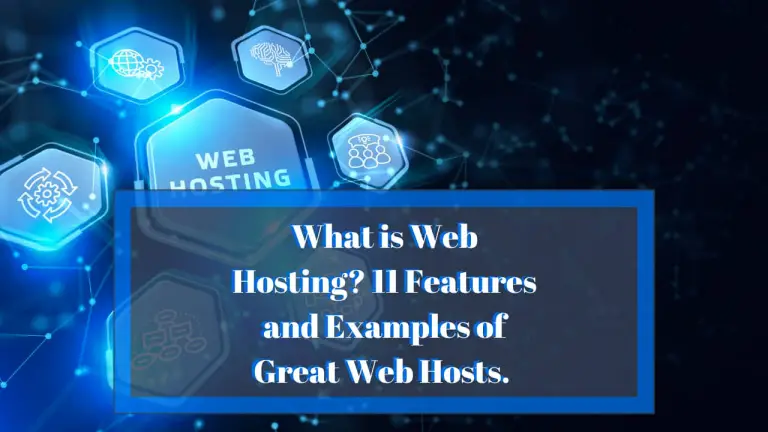

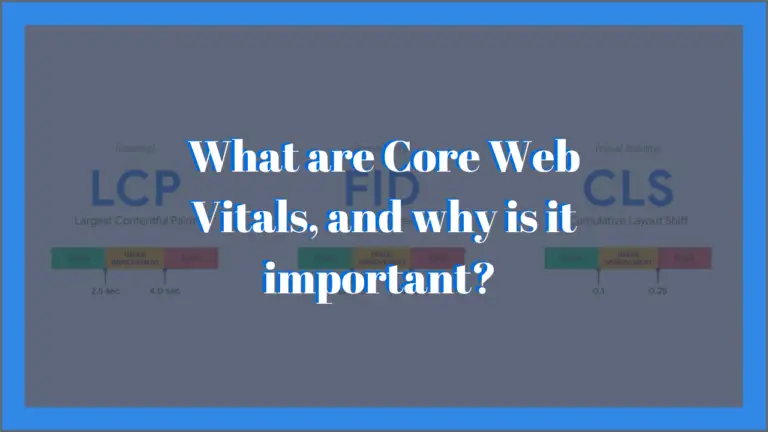
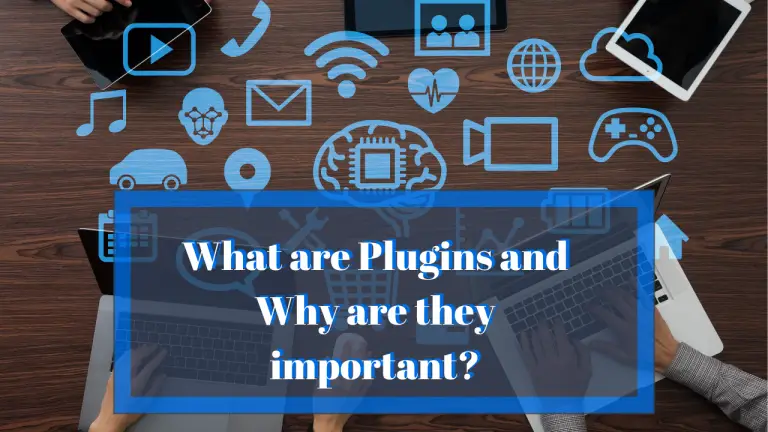


This site is very informative. I wish more persons would get the chance to read these articles. Keep up the good job Vid Pix Team. In due time the hard work will be tremendously rewarded.